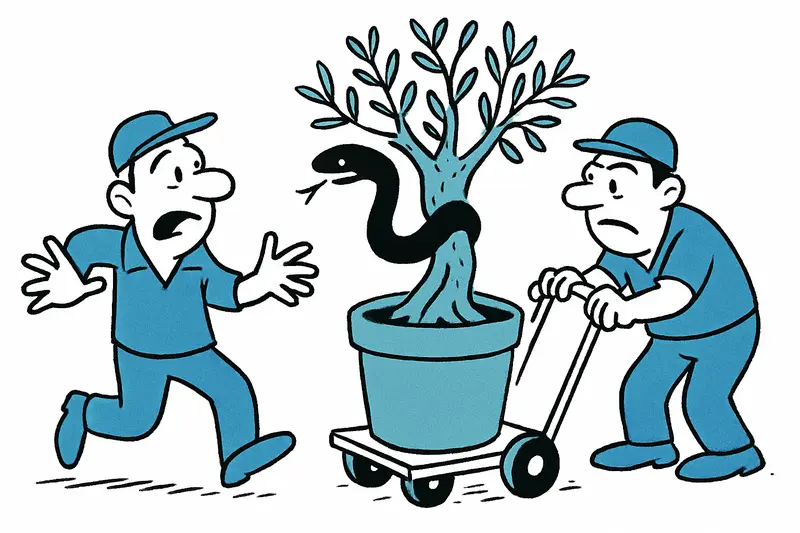The Balearic Islands have imposed an import ban on olive trees, carob trees, and thick-stemmed holm oaks. The aim: protecting endangered lizards from imported snakes.
Why a sudden ban on olive trees?
At the port of Palma, just after nine on a windy morning, I heard a dockworker say: \"Before, it was just crates; now animals are coming along.\" The authorities are responding now. After increasing reports of non-native snakes approaching small islets and rocky coastal biotopes, stricter import rules for certain trees with thick trunks apply with immediate effect.
What exactly is forbidden?
Olive trees, carob trees, and holm oaks with a trunk circumference over 40 centimeters may no longer be imported outside designated time windows. The allowed transport periods are intended to prevent animals from traveling unnoticed in hollow trunks or root balls. It sounds technical, but in practice it's a simple lever: fewer hiding places = fewer blind passengers.
Money, traps and training
The government, according to current information, is providing around 2.5 million euros additionally. Money goes into traps, teams and monitoring. On the island, several thousand catch devices have already been deployed – a clear increase compared with the previous year. In addition, staff at ports have been trained: shipments are now checked more closely, and personnel are learning to recognize signs of introduced reptiles.
I met yesterday a biologist who works on projects about the Balearic lizards. She said half jokingly, half seriously: \"We're fighting here for the disappearance of species that exist only here.\" It sounds dramatic, and it is. Some subspecies live only on a single rock off the coast.
What does this mean for the islands?
If horseshoe snakes and other invaders remain unchecked, the decline of lizard populations will continue. That has consequences for the entire ecosystem: fewer lizards = altered insect populations, altered food webs. The authorities thus plan not only controls, but also refuges in communities, captive breeding programs, and permanent monitoring boats for isolated islands.
For gardeners, municipalities and nurseries this means: plan more carefully. If you want to import a large olive tree now, you must adhere to dates or seek local alternative solutions. For many residents it's inconvenient, but out on the cliffs there's more at stake than the next gardening project.
A personal perspective
I have lived here for years and have often heard that nature conservation is bureaucratic. This time, however, you can also see the measures on the water and at the quays: more controls, more traps, more people looking for the hidden visitors. Will that be enough? Hard to say. The time windows, the money and the teams are a start, but real safety requires patience — and attention from all of us.
If you see something suspicious – on beaches, ports or small islets – please report it to the local authorities. A short call can save more than you think.
Similar News

Die Zeit auf Mallorca: Warum die Uhren hier anders ticken
Auf Mallorca läuft die Uhr offiziell anders als die Sonne — ein Erbe aus den 1940er-Jahren, das bis heute unseren Alltag...

Orange Weather Warning for Mallorca: Heavy Rain and Thunderstorms Set the Week
Aemet warns: Monday and Tuesday on Mallorca are under orange alert. Heavy rain, floods, and traffic disruptions are poss...

Life-threatening swimming accident in Ibiza: 73-year-old revived on the beach
During severe storms, a 73-year-old visitor swam despite a red flag. Lifeguards rescued her, and she is now seriously in...

Mummified Body Found in Abandoned House Near Santa Margalida
Between Can Picafort and Son Serra de Marina, teenagers discovered a mummified corpse in an abandoned house. Identity an...

Large Rockfall Blocks Ma-2141 Road Near Sa Calobra
After heavy rainfall, several rock blocks toppled onto the winding Ma-2141 toward Sa Calobra over the weekend. The road ...
